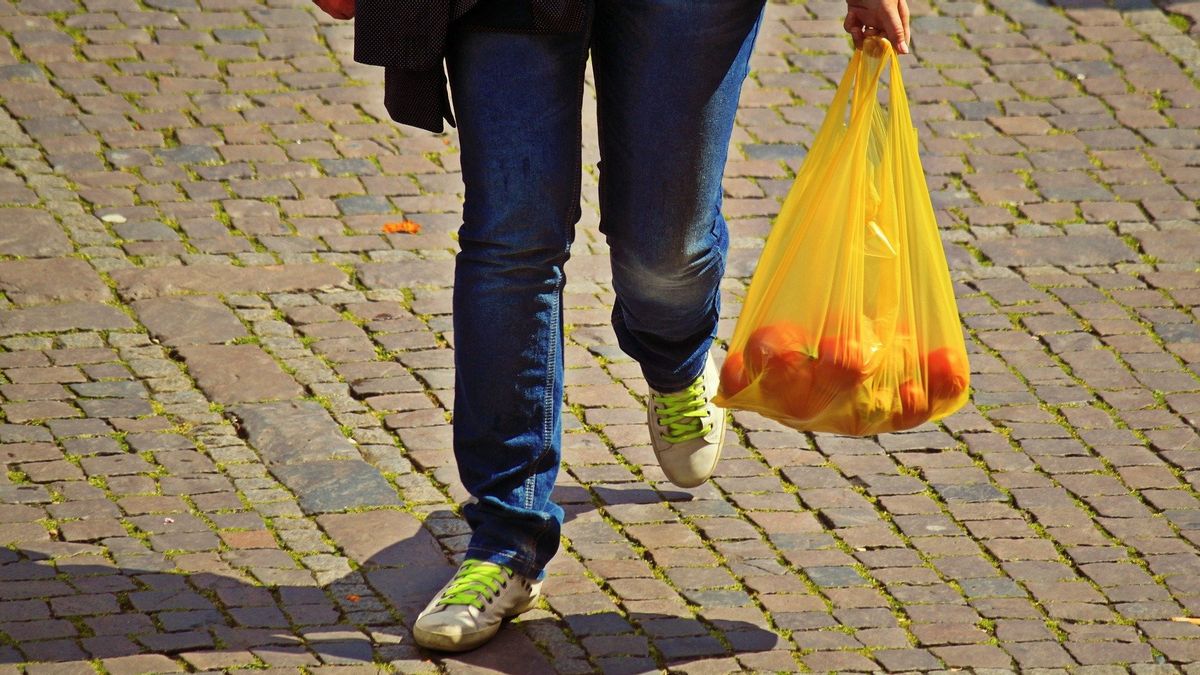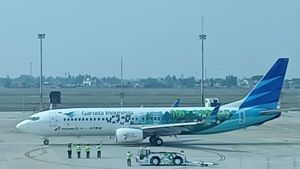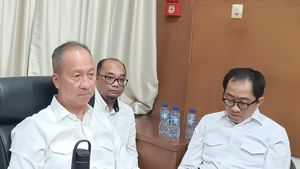JAKARTA - The Provincial Government (Pemprov) of DKI Jakarta has issued a regulation prohibiting the use of single-use plastic bags in shopping centers to traditional markets. However, this regulation is not considered serious because of the lack of supervision. Because, until the regulation began to be implemented as of July 1, many still use plastic bags.
The Executive Director of Walhi Jakarta, Tubagus Soleh Ahmadi, said that the regulation has not been implemented optimally due to the lack of supervision from the provincial government. Plus, the manager of shopping centers or traditional markets does not socialize enough to traders and buyers.
"This is more due to a lack of supervision. The management seems to let it or not to socialize it to traders and buyers. So, the regulation will not work," Tubagus told VOI, Thursday, July 2.
Supposedly, the provincial government must monitor the running of the rules that have been made. If not, it will only show a lack of seriousness in reducing the amount of plastic waste.
In fact, what will appear as if the Provincial Government is just making regulations just to make Jakarta look green. But without any realization or supervision of these rules.
"Of course there must be supervision if it is not available, it will be seen if the provincial government is not serious about implementing regulations," said Tubagus.
Business guessWith the lack of supervision, said Tubagus, there are allegations that the managers of shopping centers and traditional markets have made the regulation a business.
For example, if the shopping center manager is aware of the regulation but does not socialize it to lower levels or buyers. They seem to allow the buyers to come unprepared.
So, later buyers have to pay a certain amount of money to get non-plastic bags that are bought and sold.
"Our suspicion is in that direction (business, red). So it seems as if the management was deliberately not being socialized," concluded Tubagus.
Previously, Head of the DKI Jakarta Environment Agency Andono Warih explained that the reason for the DKI Provincial Government to ban single-use plastics was because it was related to waste. Moreover, the garbage case is one of the classic problems in Jakarta, apart from flooding and congestion.
Based on data from the Department of LH, the waste pile at the end of 2019 reached 7,702 tons / day which entered the Bantargebang TPST, where 34 percent of the accumulated waste at Bantargebang TPST was plastic waste.
"This is because this type of plastic bag does not sell well for scavengers to collect, which can be recycled by the recycling industry. This type of waste takes tens to hundreds of years to naturally decompose," said Andono.
Andono does not want to continue the paid plastic bag program that was previously implemented by the Ministry of Environment and Forestry. This is because this policy cannot reduce the use of plastic bags.
"If it is single-use, it certainly does not meet the reusable principle which is designed to be used repeatedly. Thus, it does not answer the purpose of this policy, namely reducing waste at the source," he said.
The bad impact that occurs if plastic waste accumulates is disruption of water flow in the micro and connecting channels which will cause puddles. The splitting of plastics into microplastics with these chemicals, if they are scattered into the waters, can be consumed by microorganisms and other living things.
The English, Chinese, Japanese, Arabic, and French versions are automatically generated by the AI. So there may still be inaccuracies in translating, please always see Indonesian as our main language. (system supported by DigitalSiber.id)













